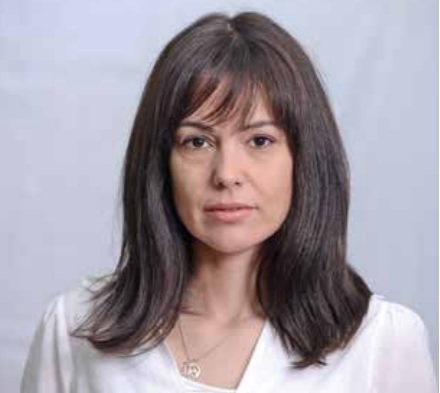
The century of change, new models of communication and ways of thinking and resources requires a flexible, creative person with a venturous spirit. The IB models implemented at the Rudjer Bošković School are based on inquiry-based learning and conceptual understanding. The aim is to lead children through the research of topics of global significance. The programme pays special attention to the development of personality traits through the IB learner profile.

Sladjana Ristić – Psychologist at Rudjer Bošković Elementary School
Functional knowledge, communication, research and self-management skills are necessary
Why is inquiry-based learning very important for younger school children?
— It is important to guide children from the very beginning to approach learning in the same way they face challenges in real-life situations. As in real life, it is important not to give children all the information in advance but to instigate them to use their experience, potential and resources in order to build upon the knowledge they already have and to make them approach the entire process actively. Learning is a dynamic process of constructing meaning and it is an individual thing for every child as it relates to a personal perspective of the world around us. This model is the best applied to children at early ages – 5 or 6 years old – as they learn through play. Our task is to prepare an appropriate context and situation in which learning will take place. It is also very important to find areas that a child is especially interested in, as well as to provide constant encouragement and help the child overcome the difficulties her/ she faces during the learning process.
What is the best atmosphere for a successful learning process?
— Different approaches and methods are adapted to the developmental characteristics of children to stimulate their curiosity, inquiry and the need for learning to initiate action and develop their independence and sense of responsibility. Modern approaches to teaching say it is important to provide an appropriate working environment, equip it with resources including digital equipment and not limit teaching to the classroom and by the school bell. Teaching and learning must also take place out of the classroom. At our school, pupils are involved in various activities and projects in science, art, sport and humanitarian work. With close monitoring and support from our teachers, they are given the necessary space for developing their ideas and actions. We provide pupils with the opportunity to present their work at several different events, one of them being the Rudjer Fest. During the Rudjer Fest, students do experiments and show their creativity and knowledge in science, art, cultural heritage and sport. We are developing different personality traits with this kind of approach, which include curiosity, open-mindedness, persistence and dedication necessary for developing self-esteem. At an early age, this is the basis of a well-balanced development.
What are the most important skills for success in the 21st century?
— Life in the 21st century is full of challenges and we cannot predict what it will be like in the near future nor what young people can expect in the job market. Experience teaches us that adapting quickly, having functional knowledge and thinking, communication, research and self-management skills are necessary. The IB programmes include school children from a very early age in projects, teaching them to cooperate through group work and encourage them to show what they have learnt through various activities. These skills are necessary in order to stage a group exhibition after the 5-year PYP cycle. The exhibition brings students together through collaboration and transdisciplinary research process. This process enables them to recognize, research and come up with solutions for everyday situations of global significance. The exhibition synthesizes the essential elements of the programme and shares them with the entire school community.